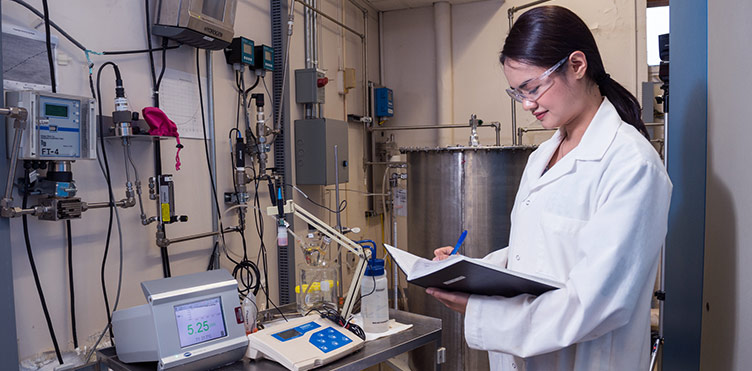
Your company may be challenged with the following corrosion issues:
Quality assurance is central to our operations. Despite our small size, a quality assurance manager is dedicated to ensuring compliance to industry standards and regulations. Our diverse skill set enables our team to be responsive and offer a range of abilities often required in complex or collaborative projects.
With the help of Canadian Nuclear Laboratories (CNL), formerly the Atomic Energy of Canada Limited (AECL), CNER’s Quality Management Program (QMP) was originally fashioned after ISO 9000:2001. We are currently upgrading and revising our QMP to be consistent with the CSA N299-3 standard for nuclear services.
As a company, we are committed to outstanding customer service. This commitment is emphasized by providing:
Contact us for a free consultation.
At CNER and within UNB Nuclear, our world-class laboratory and staff offer state-of-the-art testing facilities and expertise.
We operate eight registered high-pressure, high-temperature test loops which enable the simulation of various industrial processes. Our loops are fully automated with our latest display, data management, and control systems. Process parameters such as chemistry, flow, temperature, and pressure are monitored, stored and alarmed using a customized Supervisory Control and Data Acquisition (SCADA) system.
Loop 1 offers many functional applications, as it simulates steam cycle conditions for nuclear and fossil fuel plants. Experimental probes can be inserted in-line in the heated section, while coupons can be inserted in the autoclave.
Not only does this loop provide insight into the effectiveness of corrosion inhibitors such as Film-Forming Amines, it also supports research activities including the development and testing of corrosion probes and fundamental investigations into corrosion processes under a variety of temperature, pressure, and flow conditions.
The loop’s tubing and fittings are primarily made of grade 316 stainless steel. At maximum operating conditions, Loop 1 can reach temperatures up to 310°C, pressures up to 10MPa, and flow rates up to 4 L/min.
Loop 2 is a re-circulating loop that can operate under a range of temperature, pressure, and flow conditions. We offer multiple water chemistry selections mimicking nuclear primary and secondary heat transport water chemistries for corrosion evaluation. Water chemistry selections include: AVT, lithiated, and pH-neutral chemistry conditions.
Designed to simulate parameters of the primary heat transport system of a CANDU® nuclear reactor, Loop 2 allows for the development and testing of online sensors in order to accurately predict and monitor the corrosion rate in these environments to maximize the longevity of service equipment. It also acts as initial verification for new commercial online sensors.
This loop is equipped with a high pressure chemical injection system that is capable of delivering a chemical additive just prior to the test section. The flexible test section can be isolated from the rest of the loop to permit the insertion and removal of various experimental probes and test specimens while the loop is running. Located downstream of the test section is the low temperature chemistry section, which contains industry standard analytical instrumentation to measure dissolved hydrogen and oxygen, pH and conductivity.
The loop’s tubing and fittings are primarily made of grade 316 stainless steel. At maximum operating conditions, Loop 2 can reach temperatures up to 340°C, pressures up to 20MPa, and flow rates up to 3000 mL/min.
The fossil plant test rig can be used to investigate corrosion mechanisms related to the presence of contaminants in steam and water circuits. It is a once-through system comprised of two 50 L carboys that can be dosed with chemicals to simulate various chemical treatment schemes employed by fossil and combined cycle plants (AVT(O), AVT(R), OT). The outlet of each carboy feeds an HPLC pump capable of 20 ml/min flow at high pressure; in this way, contaminant concentration can be varied by adjusting the flow of the appropriate pump.
A 300 ml autoclave is used to maintain operating temperature for the electrochemical cell. A potentiostat and control computer are used to perform measurements and record data.
Temperatures of 350 °C and pressures of 17 MPa are possible in this test rig.